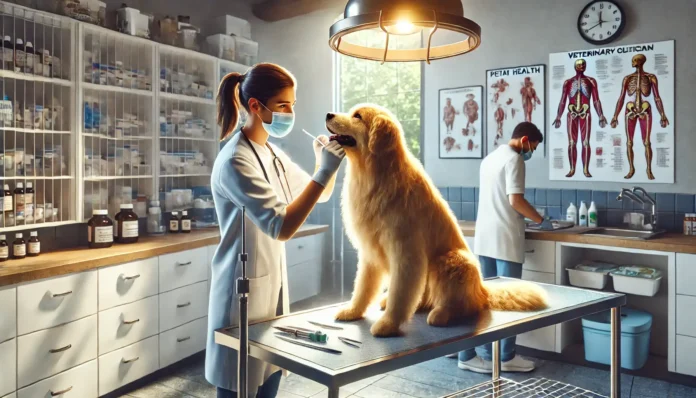Introduction to Combining Dog Vaccinations and Dental Cleanings
Can Dog Annual Vaccinations Be Done During Dental Cleaning? Annual vaccinations and routine dental cleanings are critical to keeping your dog healthy. As a passionate dog parent, you are possibly aware of these two processes.
Vaccinations protect your dog against serious, sometimes fatal diseases such as rabies, parvovirus, and distemper. Conversely, dental care prevents gum disease, tooth loss , and bad breath, which is crucial to your dog’s overall health.
Regularly scheduling your dog’s vaccinations and dental cleanings will also help keep him happy and healthy throughout the year. But that prompts the question: Can these two procedures be done simultaneously during the same visit to the vet? After all, wouldn’t it be nice to kill two birds with one stone?
Your dog’s safety matters! Learn more about the Derry Dog Park Health Issue today.
The critical question, however, is whether it’s safe and feasible. Some dog owners are still worried about the vaccine risks in conjunction with teeth cleaning because dental cleaning requires anesthesia.
In this article, we’ll discuss whether pairing these two services together is a good idea and how to manage your dog’s health without compromising its safety. Knowing the when, the risks and the benefits can help you decide what is best for your furry friend.
So, let’s examine this question and the experts’ opinions about whether you can combine dog vaccinations and dental cleanings.
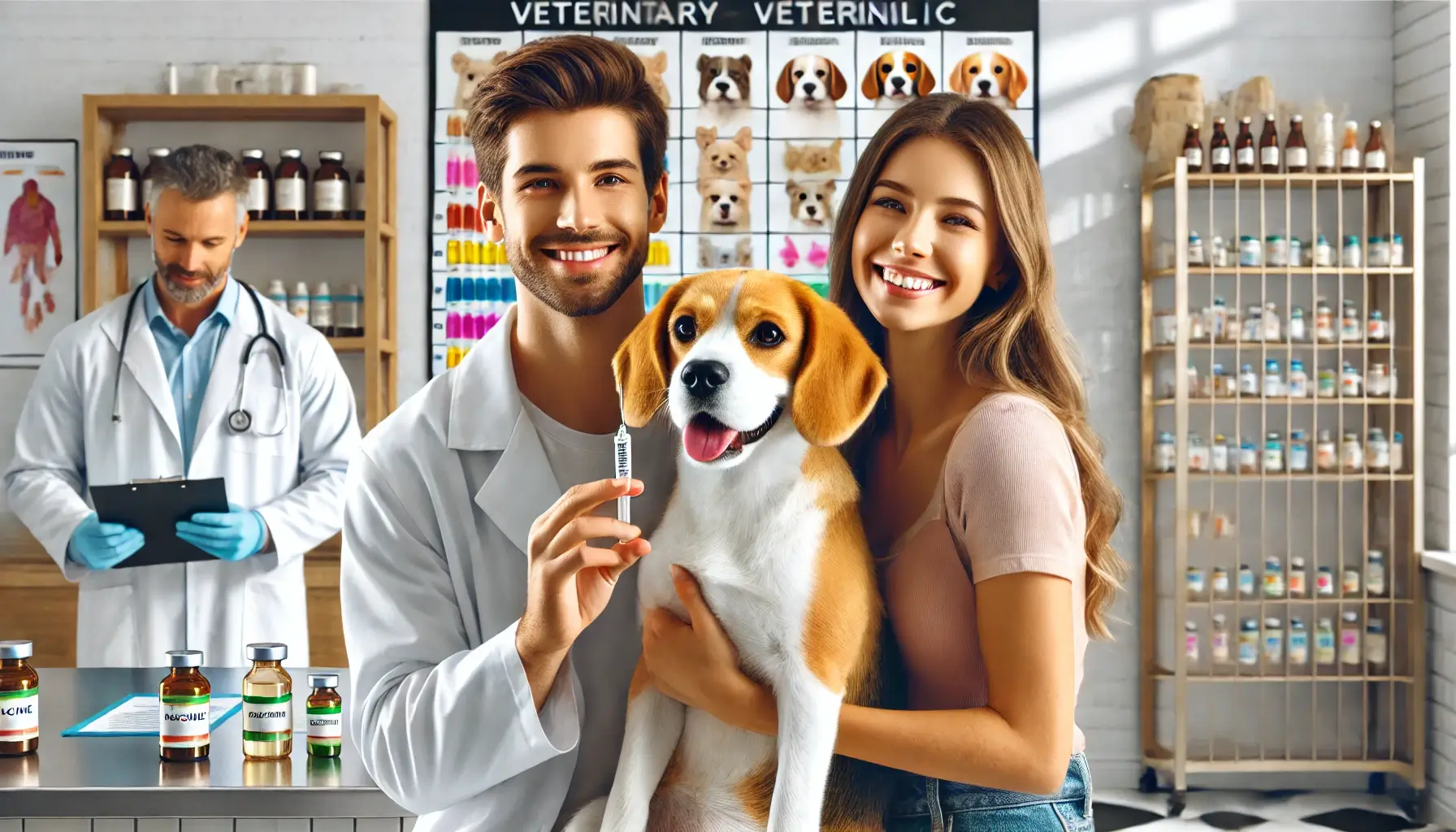
What Are Annual Vaccinations for Dogs?
One of the most important things you can do for your pet’s health is vaccinating them annually. These vaccines protect them from serious and sometimes harmful diseases and can keep your dog healthy for several years. Compared to vaccinated dogs, unvaccinated dogs are much more susceptible to infections and diseases that would be preventable with just one shot.
Vaccines are divided into core and non-core vaccines. Core vaccines, which all dogs should receive, protect against highly contagious, often fatal diseases. The core vaccines are rabies, distemper, and parvovirus.
Non-core vaccines, conversely, are administered more specifically in conjunction with your dog’s lifestyle, risk of exposure, and where you live. For example, vaccines for kennel cough or Lyme disease might be recommended if your dog is in specific environments.
How Often Do Dogs Need Dental Cleaning? Explore our complete guide for expert tips and a dental care schedule for your pup!
Types of Vaccines for Dogs
Non-core vaccines, like rabies, distemper, and parvovirus, are essential for every dog vaccination schedule. Rabies is a very severe disease and is required by law in many places, and is fatal when untreated.
Distemper and parvovirus are incredibly contagious diseases that can lead to serious illness or death. Non-core vaccines, such as Bordetella (kennel cough) or Lyme disease, are generally determined by your dog’s risk and lifestyle.
Dogs with a frequent outdoor presence or those that board may require these vaccines more regularly.
Vaccination Schedule and Timing
Most vaccines are administered early in your dog’s puppy life and then once a year as they reach adulthood. The first round of vaccines occurs at around 6-8 weeks, and they’ll get boosters every couple of weeks until they’re about 16 weeks old.
After that, most dogs get annual boosters, which will depend on the type of vaccine and the advice of your vet.
Vaccination Side Effects and Risks
Although vaccines are essential for your dog’s health, mild side effects can occur. The side effects are similar to those of other medications, such as mild fever, slight lethargy or soreness at the injection site.
These typically subside within a day or two. The rare side effects could be allergic reactions, including swelling in the mouth and throat or acute difficulty in breathing, but they are scarce. It is better to keep a close eye on your dog after vaccination and again consult your vet if you have any concerns.
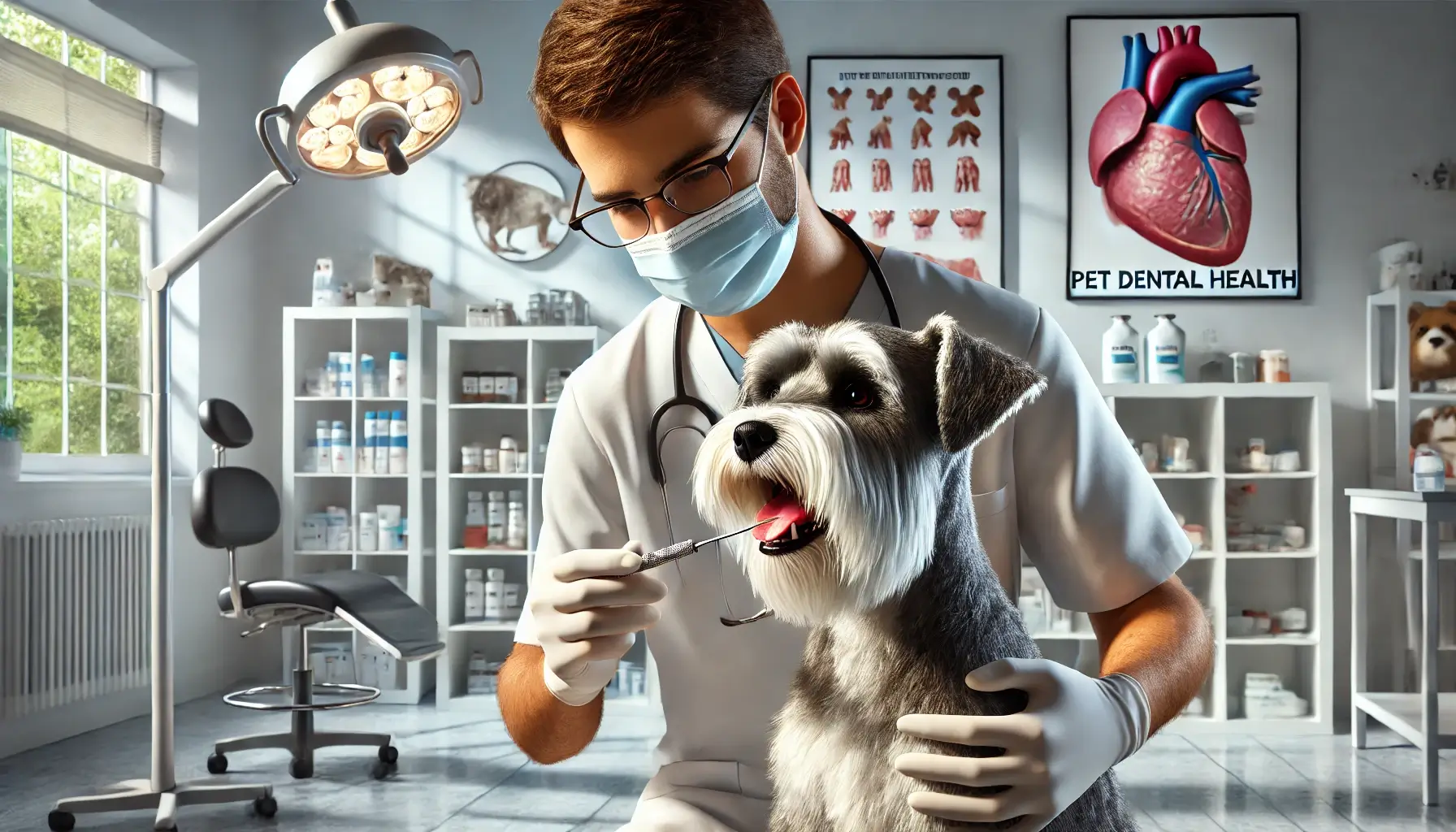
Why Is Dental Cleaning Important for Dogs?
Benefits of Dog Dental Health
Dental health is hugely important for the quality of life for your dog. The most critical benefit is the prevention of periodontal disease, a common problem in dogs that can lead to pain, bad breath and tooth loss.
Unmanaged, periodontal disease can transmit infection to other body regions and organs, including the heart, liver and kidneys. This is the reason why dental health is essential for your dog’s overall well-being.
Also, clean teeth keep the risk of systemic issues, like heart disease, down for your dog.
Bacteria from infected gums can enter the bloodstream and move to vital organs, which can cause more serious health issues. Regular dental cleaning helps keep these risks at bay making it an important component of your dog’s preventative health care.
How Often Should Dogs Have Dental Cleanings?
How often your pup has a dental cleaning will depend on their age, breed and other health factors. Between professional cleaning every 6-12 months, some dogs may require it earlier while others could get away with once a year.
Small breeds and dogs prone to tarter buildup typically need more frequent cleanings. Larger dogs, on the other hand, may not require cleaning as frequently.
While performing regular cleanings is a great way to maintain oral health, home care is just as important. Brushing your dog’s teeth regularly with dog-safe toothpaste, dental chews and special treats can help minimize plaque buildup between professional visits.
But remember that nothing substitutes for a full cleaning from a vet to make sure your dog’s teeth and gums are in their best shape.

Can Dog Annual Vaccinations Be Administered During Dental Cleaning?
The Veterinary Perspective on Combining Both Procedures
From a veterinary perspective, it is commonly deemed safe to pair yearly vaccinations with dental cleaning. Most veterinarians share the view it’s usually OK to give vaccines at the same time a dog has a dental cleaning, assuming she is otherwise healthy and under anesthesia for the procedure.
The key is getting your dog healthy well before either of those treatments because anesthesia can be risky.
If the dog is already under stress or the immune system is compromised, many veterinarians will not prefer to do these procedures together. But as long as the dog is otherwise healthy, it’s typically considered safe to give vaccines while doing dental work.
On the other hand, the option to continue with these procedures in one go can be time-saving and stressful by helping avoid multiple vet visits.
Timing and Coordination of Vaccinations and Dental Cleanings
When it comes to timing, it is also important not to administer vaccinations too close to other medical treatments. Vaccinations should ideally be performed days before or after a dental cleaning to allow the body to stabilize. Some vets may recommend spacing the two by a few days apart to mitigate any risks of possible side effects.
Table: Example of Safe Vaccination and Dental Cleaning Scheduling
| Procedure | Timing |
| Annual Vaccination | 2-3 days before dental cleaning |
| Dental Cleaning | 2-3 days after vaccination |
This schedule ensures a balanced approach, giving your dog the best care without overloading their system.
Benefits of Combining Vaccinations and Dental Cleaning
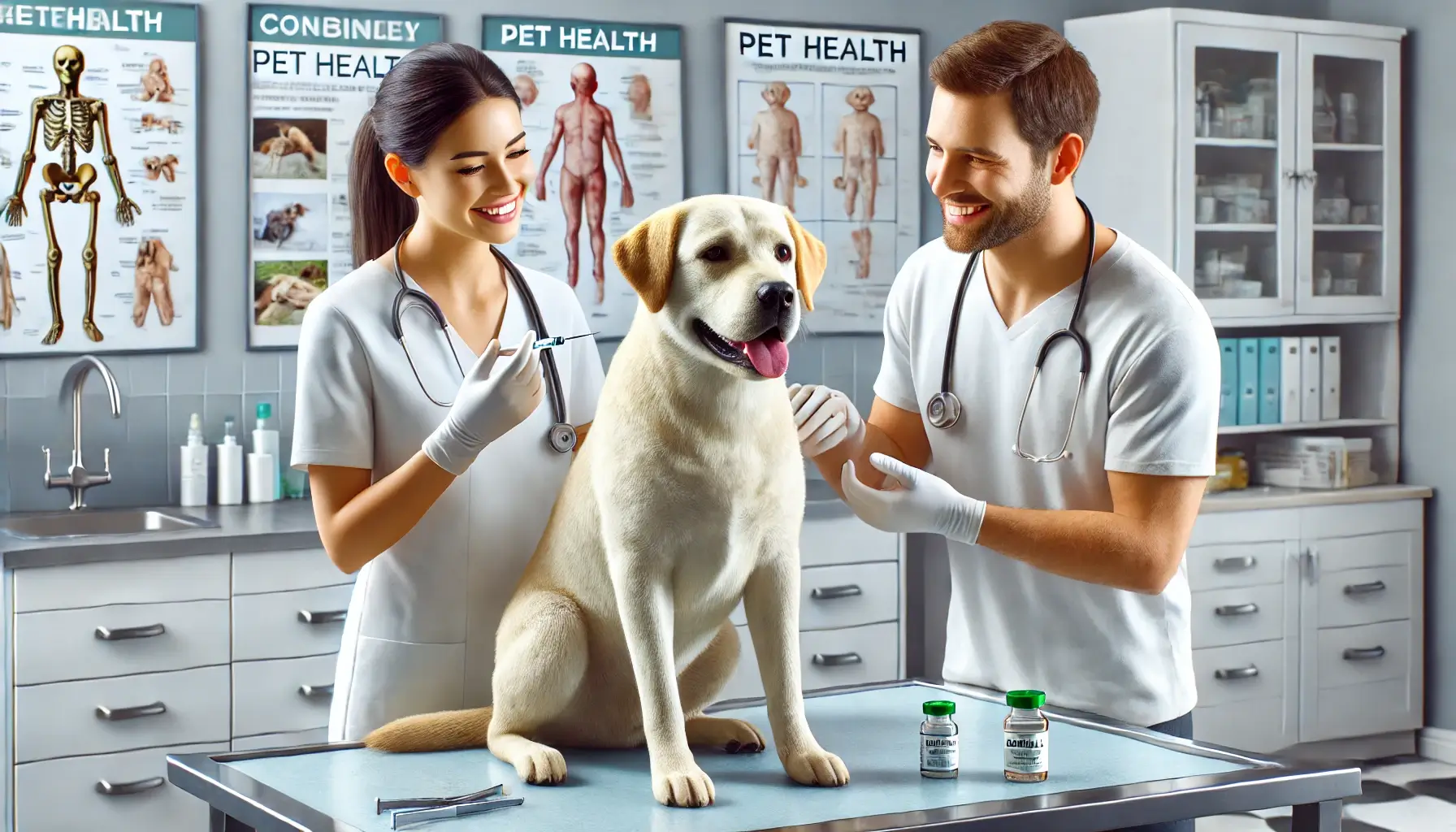
Convenience and Cost Savings
This also adds to helping you save time and money, considering the fact that you will bundle annual vaccinations with dental cleaning. And instead of having to schedule two separate time — two separate appointments, which typically means two doses of anesthesia — having them both done in one shot saves both money, and time.
Single anesthesia protocol There’s no need for multiple episodes of anesthesia, which means less disruption to your dog’s day and fewer visits to the vet, saving both you and your dog time and money.
Comprehensive Health Assessment
One significant advantage of this pairing of procedures is your dog’s overall health evaluation. While conducting the dental cleaning, your vet can also thoroughly inspect your dog to check for any other health problems that could present, helping to keep your canine companion healthy and happy.
Bullet Points: Benefits of a Dual Check-Up for Your Dog’s Overall Health
- Early detection of health issues, such as gum disease or tumors
- Less stress for your dog, as they only need to undergo anesthesia once
- Cost-effective with one combined procedure
Potential Drawbacks of Combining Procedures
Possible Risks of Combining Vaccinations and Dental Cleanings
Though the benefits of combining vaccinations and dental cleanings are well-established, there are certain risks to contemplate. One worry is overloading your dog’s immune system.
Vaccines are hard work for the immune system, and having a dental cleaning on the same day could further stress your dog’s body. Moreover, general anesthesia, whether or not the surgery is performed under general anesthesia, also entails some symptoms of risk and if your dog has any underlying health restaurant is at risk.
When Not to Combine These Procedures
In some cases, it’s typically safer to not merge the two procedures. If your dog has underlying health conditions, such as heart disease or an immune deficiency, it’s safer to do these procedures individually.” Older dogs, or those with long-term medical problems, also may be at greater risk while under anesthesia.
Case Study: A 9-year old dog with heart disease was scheduled for vaccinations and dental cleaning. The vet recommended waiting on the vaccination because of the risks of anesthesia and only performing the dental cleaning.
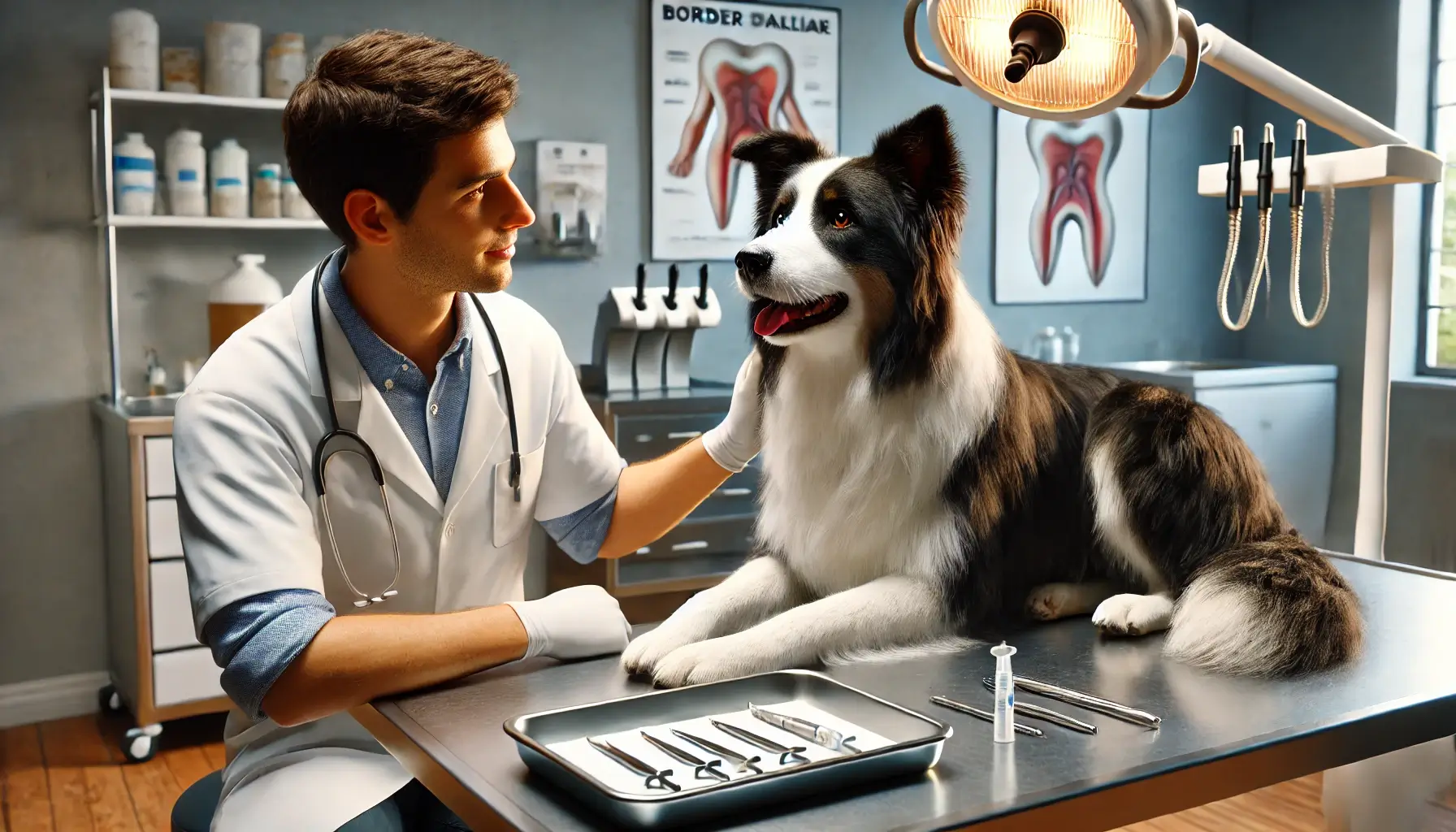
What to Expect When Vaccinations and Dental Cleaning Are Combined
Pre-Procedural Considerations
Expect your vet to conduct a wellness exam, and possibly recommend blood work to confirm that your dog is well enough to undergo anesthesia before performing any combination of vaccinations and dental cleaning.
This is an important step, as it identifies possible underlying health problems. Fasting is also usually required for a few hours before the procedure to reduce the risk of nausea or complications with anesthesia.
During the Procedure
Both the dental cleaning and vaccination will be done on the same day at the same time, and therefore your dog will be required to go under anesthesia for the cleaning. Your hygiene will include scaling, polishing, and examination for gum disease and other dental problems.
During this time, your dog will also be getting their vaccinations, often given by a needle. Your dog will be monitored by the veterinary staff and anesthetic machine, ensuring their safety throughout the procedure.
Post-Procedure Care and Recovery
Your dog will be woken up from this before you can go back to see them. They may be a bit groggy and could have mild swelling at the injection site.
They may also provide pain management, and you should note any odd behavior or signs of discomfort in your dog. You want to keep them calm and prevent vigorous activity for a few days until they recover.
Understanding Combined Veterinary Procedures
The Role of the Veterinarian in Coordinating Both Procedures
The role of the veterinarian is crucial in safely coordinating both vaccinations and dental care. It requires expertise to manage anesthesia, vaccines, and dental procedures simultaneously.
The vet must assess your dog’s overall health to ensure it’s safe to combine the two. It’s essential that your veterinarian discusses your dog’s medical history and any potential risks before proceeding.
How Veterinary Teams Manage Both Vaccinations and Dental Care
Veterinary teams are trained to ensure safety during anesthesia by monitoring your dog’s vital signs closely throughout the procedure. They’ll manage any complications that may arise, such as allergic reactions to vaccines or anesthesia.
Communication is key: your vet will discuss the risks and expectations with you beforehand, so you’re fully informed. This collaboration helps ensure that both procedures are performed safely and effectively, giving your dog the best possible care during the combined procedure.
The Importance of Annual Vaccinations and Dental Care
Holistic Dog Health Approach
Maintaining your dog’s health goes beyond just vaccinations or dental care. There is a strong connection between dental health and overall wellness. Poor oral hygiene can lead to infections that affect vital organs like the heart and kidneys.
By combining annual vaccinations and regular dental cleanings, you’re investing in your dog’s long-term health. Both treatments work together to strengthen your dog’s immune system, prevent disease, and improve quality of life.
Long-Term Benefits of Regular Health Checks
Regular health checks are the foundation of preventive care for dogs. By scheduling annual vaccinations and dental cleanings, you’re setting up a routine that helps detect issues early.
Regular visits allow your vet to spot potential problems—like heart disease or oral infections—before they become serious. This proactive approach to your dog’s health ensures they stay happy and healthy for many years to come.
Pre-Procedure Health Assessment Requirements
Why a Pre-Procedure Assessment Is Critical
Before combining vaccinations and dental cleanings, a thorough pre-procedure health assessment is essential. This ensures that your dog is healthy enough to undergo anesthesia and that the combined treatments will not cause harm.
Your vet will typically recommend blood work, a physical exam, and a detailed review of your dog’s health history. These tests help detect any hidden issues, such as kidney or liver problems, that could affect the safety of anesthesia or the immune response to vaccines.
Understanding the Anesthesia Protocol
How Anesthesia Is Used for Both Procedures
Anesthesia is necessary to keep your dog comfortable during both dental cleanings and vaccinations, as these procedures can be invasive. Safety is the top priority: veterinary teams follow strict safety protocols to monitor your dog’s vital signs throughout the process.
Risks include reactions to the anesthesia, which may be heightened when combining procedures. The vet will closely observe your dog to minimize these risks.
Alternatives to Anesthesia (If Applicable)
In some cases, non-anesthetic dental cleanings might be an option. These procedures are suitable for healthy dogs with minimal plaque buildup.
However, if your dog needs a deep cleaning or if there are other complications, anesthesia remains the safest choice. Your vet will discuss the best approach based on your dog’s specific needs.
Benefits of Combining Vaccinations with Dental Cleaning
Enhanced Preventive Care
Combining vaccinations with dental cleaning promotes a healthier dog overall by ensuring both preventive measures are addressed at once. Vaccines protect against serious diseases, while dental cleanings help prevent gum disease and other oral health issues.
By combining both procedures, you reduce the risk of health complications, such as infections that could spread from the mouth to other parts of the body. This comprehensive approach gives your dog a stronger immune system and a healthier mouth, supporting their overall well-being.
Fewer Veterinary Visits
One of the main advantages of combining these procedures is having fewer veterinary visits. Instead of scheduling separate appointments for vaccinations and dental cleanings, you can do both at once. This not only saves time and effort but also reduces the stress your dog might experience from multiple trips to the vet.
Potential Risks and Considerations
Medical Risks of Combining Procedures
Although joining vaccinations with dental cleanings is advantageous, there are health dangers. Dogs already suffering health problems — particularly older dogs and dogs with heart or liver disease — may be at greater risk from anesthesia. Complications — especially from combining the procedures — could arise, so your dog’s health must be assessed before proceeding.
Health Considerations for Specific Breeds
Some breeds may face greater risk in anesthesia than others — namely brachycephalic breeds (bulldogs, pugs, etc.). In such cases, it may be less risky to arrange for the procedures to be performed separately. Health needs vary, so always consult your vet about the best approach for your dog.
Cost Analysis: Single vs. Combined Procedures
Financial Comparison
One question many pet owners have is, “Is it cheaper to combine vaccinations and dental cleanings?”
Combining both procedures saves money, as you are only paying for one anesthesia session, one check-up, and fewer vet visits. Two rounds of anesthesia would usually be needed if the transplant, for example, were separate procedures, requiring more time in the clinic, therefore increasing the total cost.
Table: Cost Breakdown of Combined vs. Separate Procedures
| Procedure | Cost for Separate Sessions | Cost for Combined Procedure |
| Anesthesia and Monitoring | $100-$200 per session | $150-$200 (for both) |
| Vaccination Cost | $50-$100 | Included in combined cost |
| Dental Cleaning | $200-$400 | Included in combined cost |
| Total Cost | $350-$700 | $300-$400 |
Recovery and Post-Procedure Care
Managing Your Dog’s Recovery at Home
Post-operative care should be closely monitored in your dog after a combined procedure. Please give them a quiet place to sleep and keep them inactive for a few days. You may feel groggy, or the puncture site may feel mildly swollen. Follow your vet’s pain management protocol and give water and soft food as your dog regains strength.
When to Seek Veterinary Attention Post-Procedures
Look for red flags like intense bleeding, difficulty breathing, or extreme swelling. If your dog appears excessively lethargic or is vomiting, it’s a good idea to reach out to your vet as soon as possible. Those could be signs of complications that need immediate care. Always listen to your gut, and ask for help if something doesn’t feel right.
When to Schedule Separate Procedures
Scenarios Where Separate Procedures Are Preferable
Although vaccinations and dental cleanings can be conveniently combined, it is important to know that sometimes they need to be scheduled separately for the safest outcome.
If your dog has medical conditions such as heart disease, respiratory problems or a compromised immune system, he should probably avoid overstressing his body at once. Also, very young or very old dogs may not cope well with the combined stress of anesthesia and vaccinations.
If your dog is sick or recovering from an illness, it’s better to keep treatments spaced out so that their body has time to heal properly.
Preparing Your Dog for Combined Procedures
Behavioral and Mental Preparation for Dogs
Preparation Although you will inevitably pay attention to your dog’s physical state, preparation for the combined procedures is no less important. Behavioral preparation can alleviate anxiety and make things easier for your pet. In the time before the appointment, do your best to keep your dog calm and relaxed.
You can ease their anxiety by being as calm as possible yourself, and not getting overly excited or stressed on the day of the procedure. Having a favorite toy or blanket can also help comfort children.
If you do feel that your dog is having anxiety issues, it’s best to speak to your vet about any concerns, as they may recommend calming medications or special treatments to make sure that your pup is comfortable during both procedures.
Frequently Asked Questions (FAQ)
Can I combine my dog’s annual vaccination with a dental cleaning?
Yes, under proper conditions most vets will allow combining both procedures. But it’s always good idea to check with your vet first to make sure it’s the right option for your dog’s health and safety. Every dog has different needs so always consult your vet’s advice.
Is it safe to give vaccinations while my dog is under anesthesia for a dental cleaning?
Generally, it’s safe to give vaccinations while your dog is under anesthesia for a dental cleaning. Risks are minimal, but it’s important to have a full health check-up before proceeding. Discuss any concerns with your vet to ensure your dog is fit for both procedures.
How do I know if my dog is healthy enough to undergo both procedures at once?
Your vet will perform a complete health evaluation to assess if your pet is healthy enough for both procedures. This includes blood test and a physical exam to confirm that they’re safely able to do anesthesia and vaccinating.
Can my dog experience side effects from both procedures?
While side effects are possible, they are generally rare and manageable. Your vet will provide guidance on post-procedure care and how to monitor your dog for any signs of discomfort or complications.
Is it cheaper to combine these procedures or schedule them separately?
Combining procedures may save both time and money, as there’s only one anesthesia session. However, consult your vet to discuss cost breakdowns based on your dog’s specific health needs and any potential risks involved.
Conclusion
Summing up, both vaccinations and dental cleaning can save time and money when done at the same time. It cuts down on the number of times you have to take your dog to the veterinarian and the number of times your dog needs to be put under anesthesia, which can mean a lot for you and your dog.
Also, if a Health Check is performed in the same, it opens up the opportunity to document early evidence for any health issue for the provider. But there are things to take into consideration, such as the possibility of overloading your dog’s immune system or the issues that can arise from anesthesia, particularly where your dog may already have existing health issues.
As always, the decision to combine these procedures should be done with your veterinarian. They will consider your dog’s health, age, and medical history to decide if it’s safe to do both at the same time. If your dog has particular health issues, like heart disease or a compromised immune system, it might be advisable to separate the procedures.
In the end, the most appropriate care you can offer your dog is with tailored guidance from your vet, taking your individual pet’s specific needs into account. Making sure that your dog has the right treatments at the right time requires regular visits while knowing what to expect allows you to stay well ahead of the game and advocate for your furry friend to ensure they stay happy and healthy for many years to come.
Popular Article
Dental Health in Dogs Guidelines
Dental disease dog teeth cleaning before and after
How long do dog dental cleanings take
What to Feed Dog After Dental Cleaning
How often do dogs need dental cleaning
Can dogs get dental implants
Clindamycin dosage for dog’s dental


